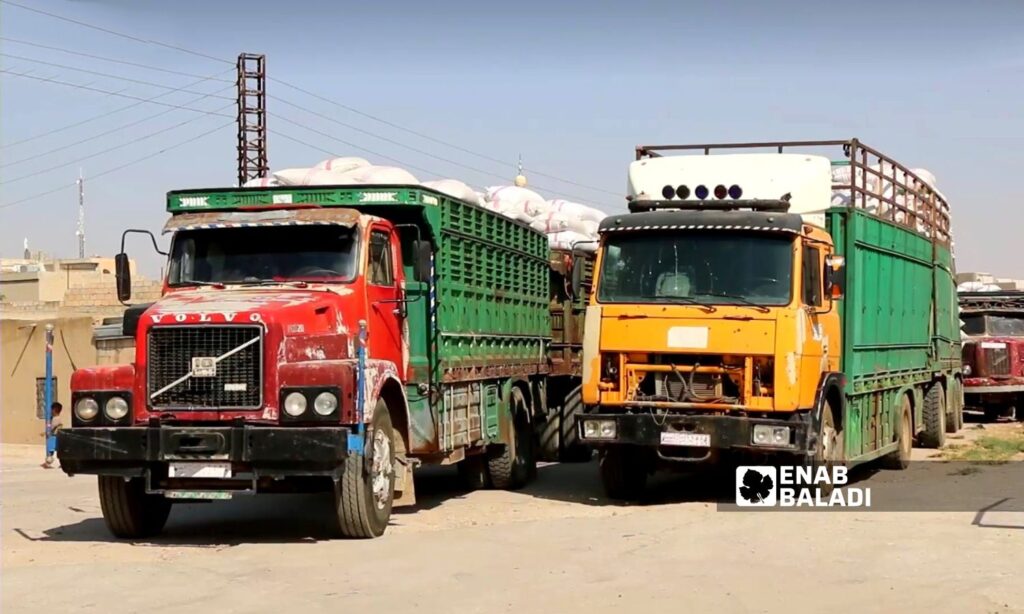The Syrian Interim Government (SIG) has set wheat prices in the areas under its control at $220 per ton for first-grade soft wheat.
According to his statement to Enab Baladi, the director of the Aleppo branch of the Grain Corporation affiliated with the Interim Government, Jumaa Bakour, clarified today, Tuesday, June 4, that the SIG has added a bonus of $25 that farmers receive for each ton of wheat delivered.
This pricing is in line with a previous decision issued by the Interim Government in September 2023, reviewed by Enab Baladi, which set the price of the first-grade soft wheat at $220 per ton, the second-grade at $215 per ton, and the third-grade at $210 per ton.
These rates are lower than those adopted for the previous season when the Interim Government set the price through the Ministry of Economy on June 13, 2023, with hard wheat at $330 per ton and soft wheat at $285 per ton.
In other areas
On May 28, the Syrian Salvation Government (SSG), operating in Idlib, northern rural Hama, and parts of western rural Aleppo, set wheat prices for the current agricultural season lower than the previous season.
According to a decision issued by the Ministry of Economy in the government, the price of first-grade hard wheat was set by the General Corporation for Grain Trade and Manufacture for the 2024 season at $310 per ton, compared to $320 in 2023.
Meanwhile, the Syrian regime government set the price for purchasing wheat from farmers on April 23 at 5500 Syrian pounds per kilogram ($0.36), four cents higher than the price set in the previous wheat season of 2800 pounds ($0.32), when the exchange rate was 8600 pounds to the dollar.
The Agriculture and Irrigation Authority in the Autonomous Administration of North and East Syria (AANES) also set the price on May 26 at $0.31 per kilogram, under a regular grading system, compared to last year’s price of $0.43.
AANES later justified its lower prices, attributing them to the “economic blockade facing northeastern Syria’s geography and the Turkish occupation attacks,” which negatively impacted many financial resources, according to its statement.

